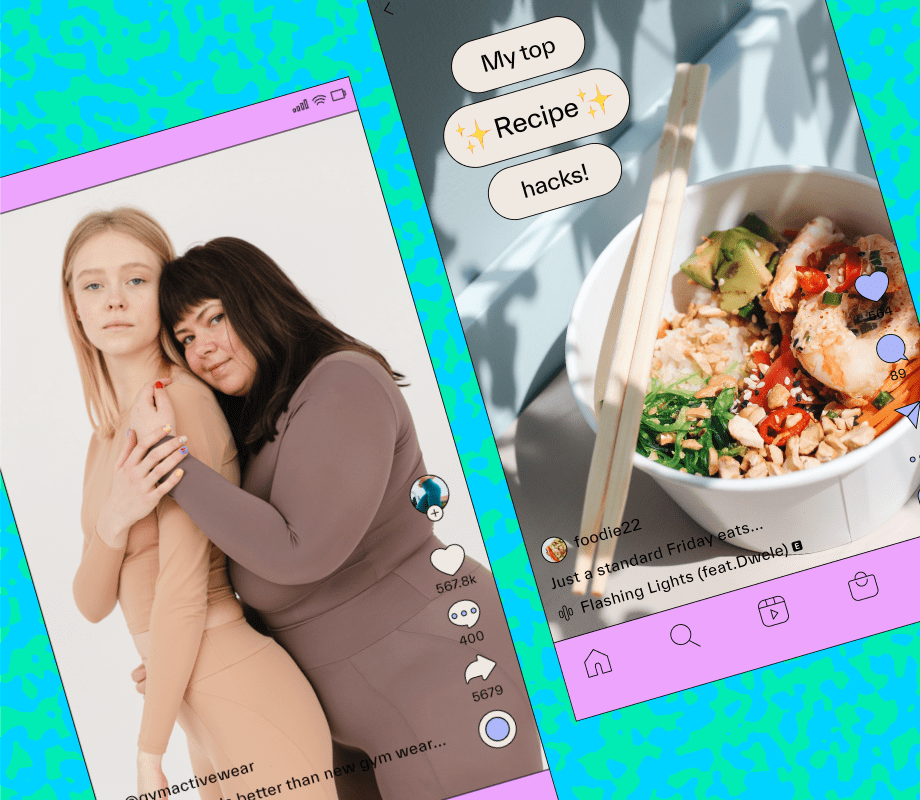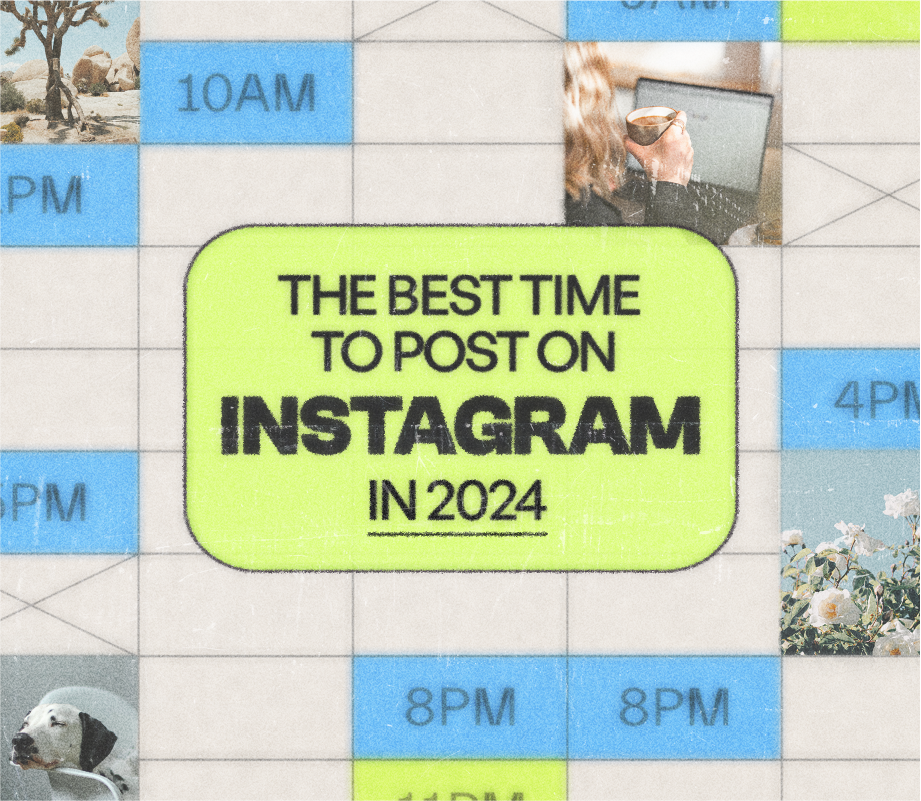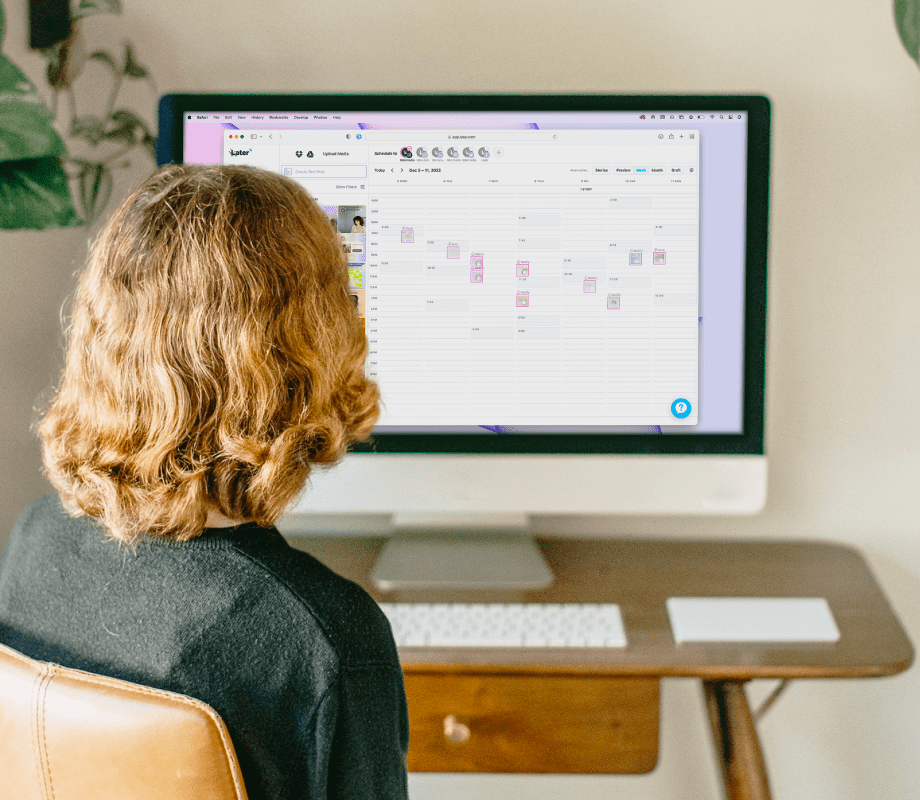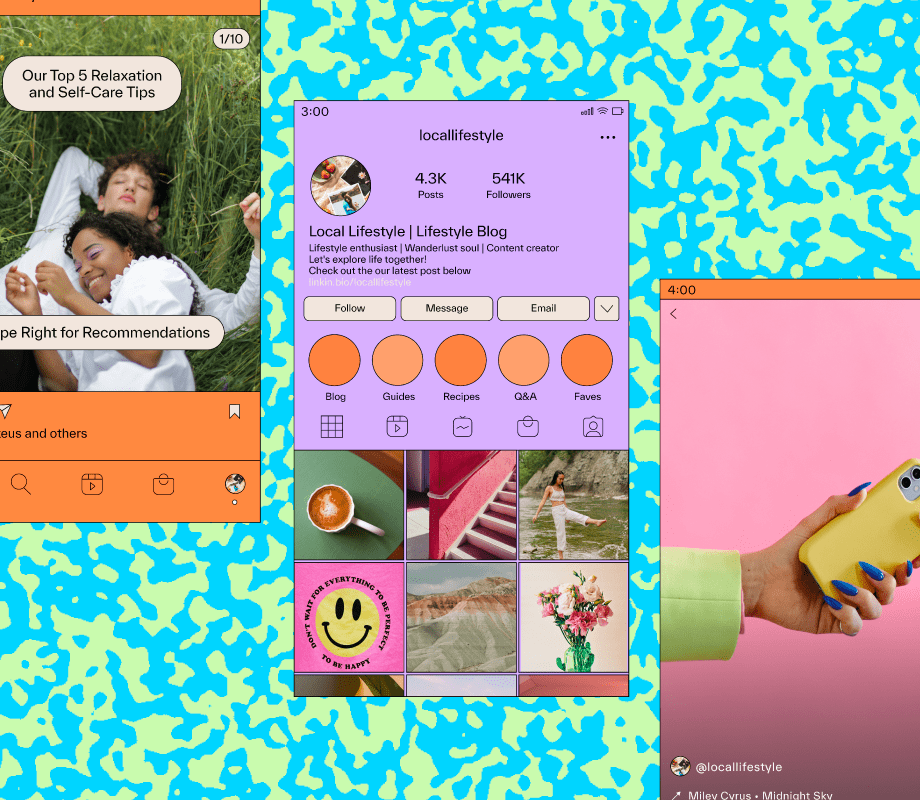TikTok vs Snapchat vs Instagram... Which social media platform reigns supreme when it comes to brand marketing?
Each one offers a unique set of tools for communicating with your customers, especially when it comes to Gen Z.
In the following blog post, we're sharing how each platform differs – as well as how to best to leverage each app for growth!
TikTok: The Viral Video Engine
TikTok was, by a landslide, the most popular app of 2021. With 656 million downloads last year alone (over 100 million more than Instagram), the viral video platform solidified its place in the Gen Z zeitgeist.
The app, owned by Beijing-based ByteDance Ltd., has come a long way since its launch in 2017.
What started as a platform for mainly lip-syncing and dance videos has evolved into a home for diverse content suited to every type of viewer (although there's still plenty of dancing and lip-syncing, too).
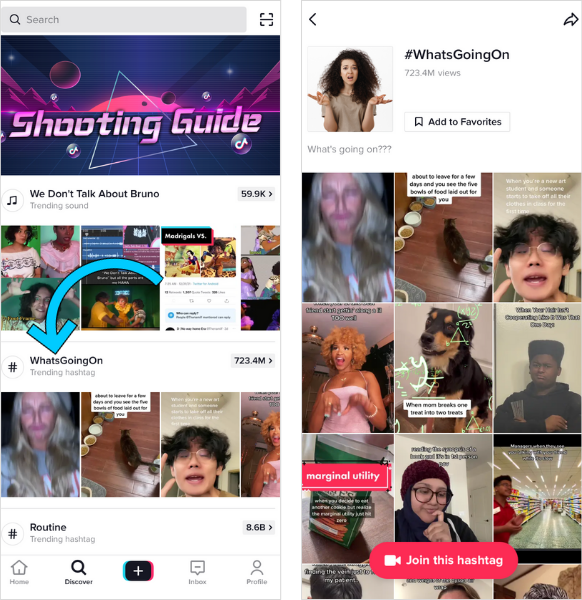
That means, no matter what your brand's niche, if you're targeting Gen Z, TikTok is a great place to start.
Ready to take your TikTok strategy to the next level. Plan and schedule your TikTok content in advance with Later:
TikTok’s Main Content Formats
#1: In-Feed Posts
When you open TikTok, the first thing you see is the For You Page — an endless feed of algorithmically-curated videos featuring posts from creators big and small. It's the primary way users discover new content on the app.

TikTok's algorithm populates users' For You Pages with videos curated just for them based on the content they've interacted with in the past, who they follow, their current location, and more. All of those videos are also visible on each creator's dedicated profile, but the way you get to those profiles is typically via the For You Page.
Want to increase your chances of being featured on the For Your Page? Follow these six top tips.
#2: TikTok LIVE
Heavily edited videos don't perform nearly as well as authentic, relatable content on TikTok. And what's more authentic than speaking to your audience live?
Over the past year, the number of users interacting with and hosting TikTok LIVE videos has doubled. To sustain that growth, the company continues to release new tools for:
Scheduling and promoting LIVE events
Giving away gifts during LIVE events
Accepting and answering viewers questions
Hosting events with other brands and creators
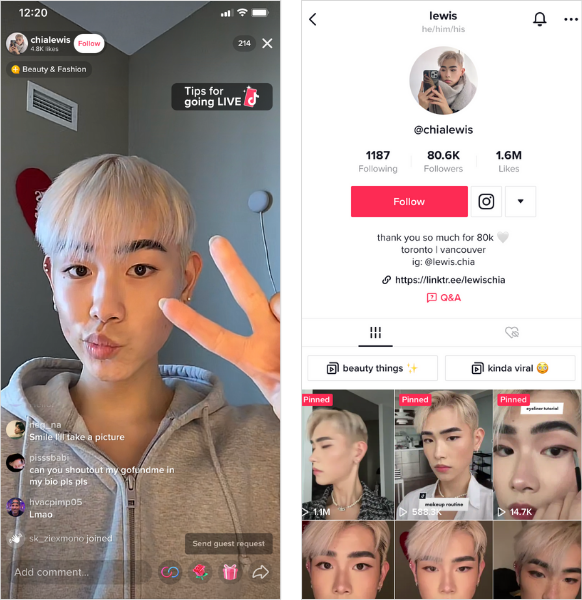
@lewischia
Plus, to make LIVE videos more easily discoverable, they now surface on users' Following and For You Pages.
There's one catch though…
To host a TikTok LIVE, you need to be over 16-years-old and have at least 1,000 followers. Any less than that and you'll need to spend some more time cultivating a community on the app before you make your LIVE debut.
Who Uses TikTok?
TikTok is a young person's playground. While there are plenty of millennials on the app, most of its users are Gen Z, making it the perfect platform for brands with products and services designed for people 24-years-old and younger.

Age breakdown of TikTok's U.S. user base (Source: Statista)
10- to 19-year-olds make up a quarter of all TikTok users in the United States — the largest age group on the app. Combined with the platform's millennial audience, the two generations account for nearly 70% of its user base.
Why Try TikTok?
According to a study from TikTok, 92% of users say they take action after watching a TikTok video (such as sharing, following, or commenting), and 25% of all Gen Z users say TikTok videos have led them to purchase or research a product.
If you're not on the platform, you could be missing out on a lucrative tool for both building brand awareness and driving revenue.
The beauty of TikTok is that whatever your niche, there's an audience for it on the app. There's science, dentistry, dancing, cooking, personal finance, and more.

So try it out! And remember, authenticity is the key to success on TikTok, so create content that shows off your personality, be bold and funny, and take your followers behind the scenes of your brand.
Ready to level up your business' TikTok game? Easily plan your videos, write captions, and schedule content using Later.
Snapchat: The Vanishing Video App
In September 2011, Snapchat burst onto the social media scene with a unique product offering: disappearing content.
Snapchat's initial success was inevitable. A platform where content has a time limit comes with a built-in sense of urgency. But after a few years of explosive growth, its popularity slowed, and in 2018 the number of daily active users began to decline.

Recently though, Snapchat has experienced a revival among Gen Z users.
In fact, according to a 2021 survey from Piper Sandler, 35% of teens say it's their favorite social media platform (yes, ahead of TikTok and Instagram).
Snapchat’s Main Content Formats
#1: Direct Messages
Most people use Snapchat for its messaging feature, which allows you to send disappearing photos, videos, and texts directly to friends.
You can choose how long a photo or video is visible before it disappears, send content to individual friends or groups, and spice up your visuals using drawings, emojis, stickers, filters, and lenses.

Keep in mind though that direct messaging is a consumer feature – and while Snapchat is a powerful platform for brand awareness, it doesn't have as many tools for customer service (i.e. speaking directly to viewers) as TikTok and Instagram.
#2: Snapchat Stories
In 2013, Snapchat launched Stories (Instagram Stories came out three years later, and there was a lot of controversy at the time about them being a rip-off of Snapchat Stories).
Like Snapchat's direct messages, Stories were private at first. Only your friends could see them, and they expired after 24 hours. But a lot has changed since then.

Today, users can share Snapchat Stories publicly and without a time limit — and tons of brands are joining in on the fun. Snapchat also has a "Stories" tab that displays content from its 500 million monthly active users, including both brands and creators.
#3: Spotlight
The latest Snapchat feature looks a lot like TikTok.
Similar to the viral video platform's For You Page, Snapchat Spotlight is an endless feed of looping, short-form video content. Many creators even repurpose their TikTok content for Snapchat Spotlight, like pop artist Matt Chessco for example:
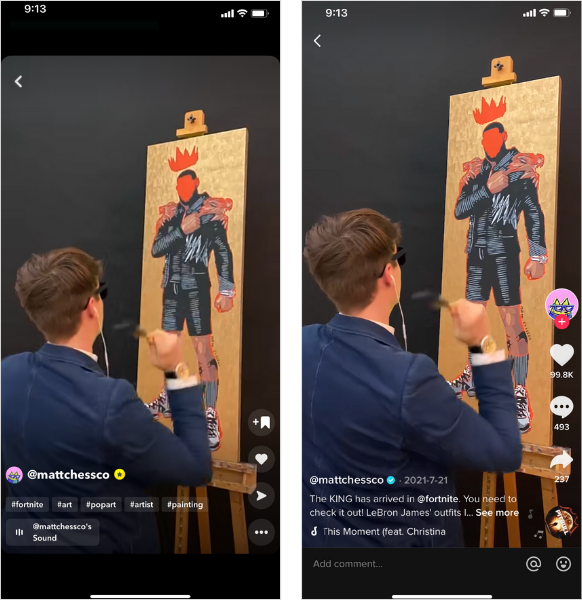
And what differentiates it from Snapchat Stories? Sometimes nothing!
Snapchat Stories can also appear in the Spotlight tab — but only if they're videos.
Who Uses Snapchat?
According to the company itself, Snapchat reaches 75% of millennials and Gen Z in the United States, making it a goldmine of potential customers if your brand's primary audience falls within the broad 10-40 age range.

Age breakdown of Snapchat's global user base, as of October 2021. (Source: Statista)
And globally, the app's audience — of 306 million daily active users who use it for an average of 30 minutes per day — have a combined $4.4 trillion in spending power.
Why Try Snapchat?
With so many young people logging into Snapchat daily, it's an underutilized choice for driving brand awareness among Gen Z and millennials alike.
And to make it easier, the company consistently rolls out new features to help businesses market themselves on the app.
If you set up a Snapchat business account, you get access to:
Ads Manager: This allows you to create ads, monitor their performance, and see audience insights.
Creator Marketplace: A hub for connecting and partnering with other Snapchat creators.
Public Profiles: A permanent home for your content, including stories, lenses, and even a link to your online store.
HOT TAKE: Snapchat is a place Gen Z uses to unwind and connect with their friends online. It's their happy place. And for businesses, this is a good thing. Connecting with users where they're most comfortable can be an effective way to generate positive brand association.
Plan and schedule your Instagram, Facebook, Pinterest, Twitter, LinkedIn, and TikTok posts in advance with Later, for free!
Instagram: The Jack of All Trades
In some ways, it's hard to compare TikTok vs Snapchat vs Instagram — mainly because Instagram's product offerings are so much more extensive than the other two.
While TikTok is all about viral video and Snapchat is focused on ephemeral content, Instagram is all that and more, rolled into one ubiquitous app. So it's no surprise that over 200 million businesses are active on the platform.
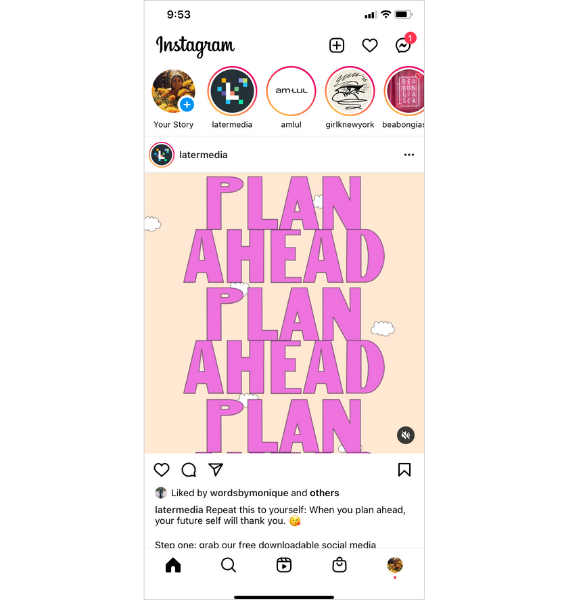
Instagram’s Main Content Formats
#1: Feed Posts
When Instagram launched 12 years ago, it had one purpose. It was a place to share your photos! And every photo posted appeared both on your unique profile and in your followers' feeds.
Since then, in-feed posts have expanded to include video too, but the essence of the feature has remained the same. It's a tool to teach people about you (or your brand!) and reach your followers where they're already browsing (aka their feeds).
Check out the feeds of three very distinct creators — clothing company, Kotn; NASA-run space telescope, Hubble; and pop artist, Matt Chessco — below:
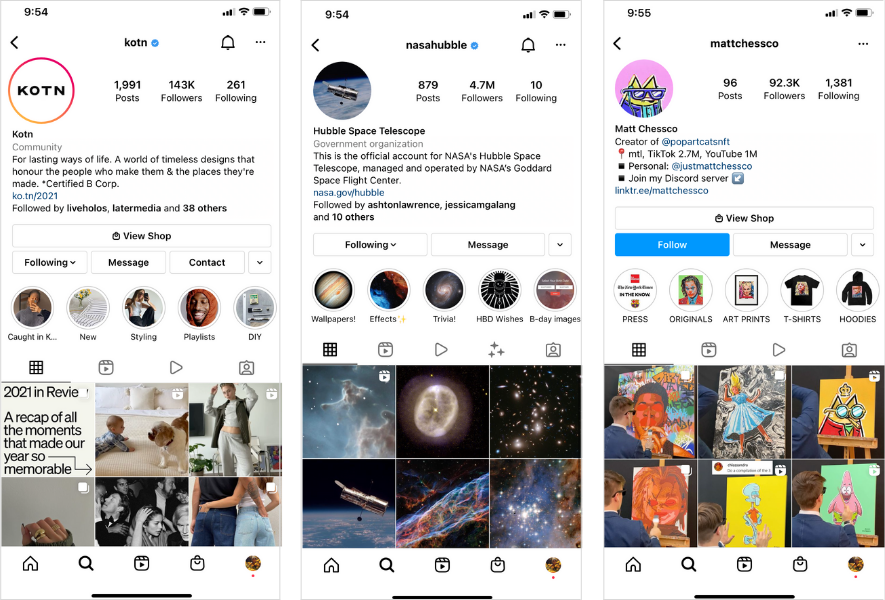
Public in-feed posts may also be showcased on the Explore Page — a space for users to discover new content picked just for them by the Instagram algorithm.
PSA: Later is a social media scheduling tool trusted by over 4M businesses, creators, and social media managers. Plan and automatically publish your Instagram posts with Later – for free!
#2: Instagram Stories
If you're putting resources into creating content for Instagram, Stories are definitely worth the investment. Here's why:
A staggering 91% of the app's Gen Z audience uses Instagram Stories every day.
Altogether, over 500 million people interact with Stories daily.
Similar to Snapchat Stories, Instagram Stories disappear just 24 hours after being uploaded. They can be static images, videos, or text-only posts. And to help make your Stories content more engaging, you can use in-app tools — like filters, stickers, and GIFs, polls, and more.
#3: Instagram Reels
Think of Instagram Reels as the company's version of TikTok videos. They're up to 60-second long, looping video clips — many of which are, in fact, direct re-posts of TikTok content. Because of that, best practices for optimizing Instagram Reels are very similar to the best practices for creating TikTok videos, including:
Keep your captions short and sweet
Hop on new trends fast
Include 3-5 hashtags
Post consistently
Prioritize entertaining or educational content
TIP: While you’ll notice some accounts posting duplicate content to TikTok and Instagram Reels, it’s best practice to create original videos for each platform.
#4: Instagram Live
Instagram Live gives businesses, creators, and regular folks alike the power to host virtual events, informational sessions, or just chit-chat with their followers.
And the best part? It’s purpose-built to drive engagement.
Viewers can submit questions for hosts to answer in real-time, making this one of the most effective ways to build a genuine connection with your community.
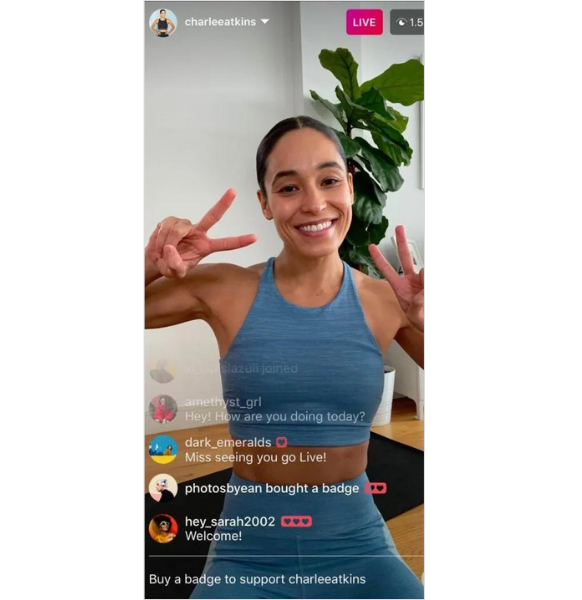
Plus, you can have up to 4 hosts on a single Instagram Live, allowing you to collaborate with other brands and creators. And for anyone who misses them, you can also share past live streams straight to your feed.
Who Uses Instagram?
A better question would be "who doesn't use Instagram?" — because the platform's user base is so vast and diverse. Seriously. The app has 2 billion monthly active users.

Age breakdown of Instagram's global user base, as of October 2021. (Source: Statista)
Unlike Snapchat and TikTok, which have large audiences of younger teenage users, Instagram skews toward slightly older members of Gen Z and younger millennials. Collectively, 18- to 34-year olds account for over 62% of the app's total global audience.
Why Try Instagram?
If you're looking for a single social platform that does it all, Instagram is the one.
You can interact with your audience in real-time over live video, hop on trends and experiment with fun content using Reels and Stories, and create a hub of static and video content with in-feed posts. All while tapping to a massive global audience, 50% of whom say they're more interested in a brand when they see ads for it on Instagram.
Instagram has also built a suite of tools designed to make brand-marketing, advertising, and even shopping easy:
Call-to-action buttons for your profile
Shoppable posts linked to your online store
An analytics dashboard to track post performance
In-app checkout experience so customers can shop seamlessly
FYI: You can plan and schedule all of your Instagram content in advance with Later! Sign up today (for free!) and start posting – no credit card required:
TikTok vs Snapchat vs Instagram: Which Platform Is Best?
So what's the verdict? In the case of TikTok vs Snapchat vs Instagram, which platform should you choose?
It turns out there's no one-size-fits-all answer to this question. What works best for you will depend on your brand and what you're hoping to achieve with your social media presence. But here's what you need to remember:
Instagram is great if you want to prioritize both video and static content and access a robust suite of brand marketing and e-commerce tools (plus a massive global audience).
If you're focused on video, Snapchat is an excellent way to build positive brand awareness among Gen Z — many of whom rank the app as their favorite social media platform.
With a focus on authentic and playful video content, TikTok is the platform that gives you the best chance of going viral. Plus, it's a place to have fun and experiment with less curated content.
Keep in mind that diversifying your online presence by using multiple platforms at once is a good thing. So if you can, try out all three!
Want more social media marketing advice delivered straight to your inbox? Subscribe to Later's newsletter and never miss a social media moment.
